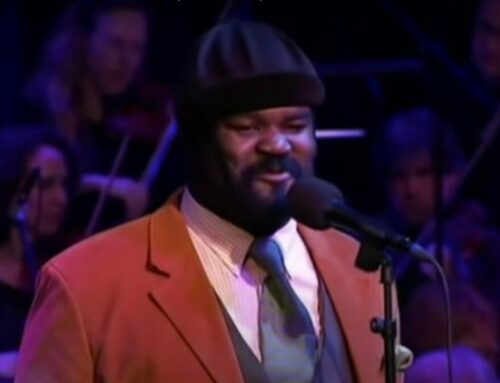Anita O’Day is one of the coolest jazz singers I know. She has a way with rhythm that is so spectacular and so highly personal. You’ll immediately recognize her style and playfulness. She bends, stretches or shortens to her liking and always manages to come out right. She’s the diva of phrasing. That is an art she masters beautifully.As a singer, you’ll know what I mean. In jazz, we simply love the freedom it provides. Rhythmic displacement is one our toys. The joy of phrasing a little bit different from what was written.
As a singer, you’ll know what I mean. In jazz, we simply love the freedom it provides. Rhythmic displacement is one our toys. The joy of phrasing a little bit different from what was written.
I came across a touching statement by American jazz singer Jay Clayton: “I can remember the first time. I just loved it. I sang Moonlight in Vermont, just the melody, very simple. And I remember changing one note, and that was the first new phrase I ever did. I didn’t plan it, but after I did it, it felt so good. I was shaking, my legs were shaking, but it felt so good.”
That wonderful feeling of freedom, of being inspired by what you hear being played by your band is just magical, don’t you think? All too often I hear that singers from all corners of the world want to experience that freedom, but are at a loss at how to begin. How can YOU loosen up, change your phrasing and get into the moment, like Anita O’Day does so wonderfully?
Simply start with a single phrase – and sing the phrase a bit later, or a bit earlier. This is called back phrasing or forward phrasing.
When you back phrase, you start the phrase a couple of beats (or maybe just one beat) later than the original starting point. When you phrase forward, you begin at an earlier starting point than originally written. Try this with your next song, and you will be amazed.
Let’s pretend you sing Fly Me To The Moon; that normally starts on the 1. Practice starting on the 2. Or, when you phrase forward, start on the 4 or the four – e, of the measure before you’d normally start. You might have to change the rhythm of the phrase – or do that later, for example in the next one – to be in time for the next one, or change the pause in between phrases.
Have fun!! Looking forward to hearing about your experiences!
With love, Ilse
My album tip:
Anita O’Day Swings Cole Porter with Billy May (Verve, 1959)
Anita O’Day on Wikipedia:
https://en.wikipedia.org/wiki/Anita_O%27Day






